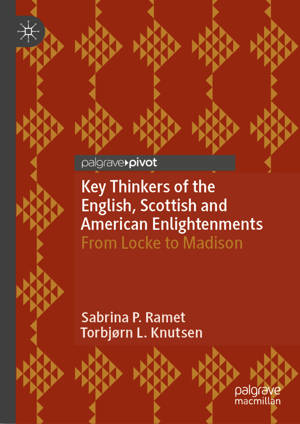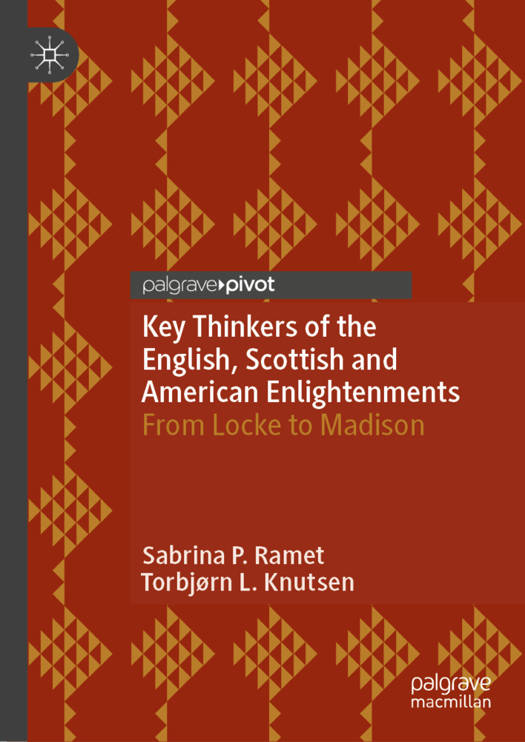
- Retrait gratuit dans votre magasin Club
- 7.000.000 titres dans notre catalogue
- Payer en toute sécurité
- Toujours un magasin près de chez vous
- Retrait gratuit dans votre magasin Club
- 7.000.0000 titres dans notre catalogue
- Payer en toute sécurité
- Toujours un magasin près de chez vous
Key Thinkers of the English, Scottish and American Enlightenments
From Locke to Madison
Sabrina P Ramet, Torbjørn L KnutsenDescription
This book summarizes and explains the way in which political thinkers in England, Scotland, and North America reshaped Western thinking about government and citizens. Although the ideas of the Anglo-American Enlightenment can be traced back, in embryo, to the Italian Renaissance and the Protestant Reformation, it was responses to wars - the Thirty Years' War (1618-1648) and the English Civil War (1642-1651) which were fought above all over religion - that defined it. Algernon Sidney demanded an end to royal absolutism. John Locke called for a government based on religious toleration. Benedictus de Spinoza, Samuel von Pufendorf and others elaborated on the ideas that society was composed of sovereign individuals endowed with reason and rights. Building on the works of these thinkers, Scottish philosophers including David Hume and Adam Smith, and American revolutionaries including Thomas Jefferson and James Madison advanced arguments defending human reason, individual freedom, including religious freedom, and democracy.
Spécifications
Parties prenantes
- Auteur(s) :
- Editeur:
Contenu
- Nombre de pages :
- 143
- Langue:
- Anglais
Caractéristiques
- EAN:
- 9783031624537
- Date de parution :
- 13-08-24
- Format:
- Livre relié
- Format numérique:
- Genaaid
- Dimensions :
- 147 mm x 201 mm
- Poids :
- 317 g







